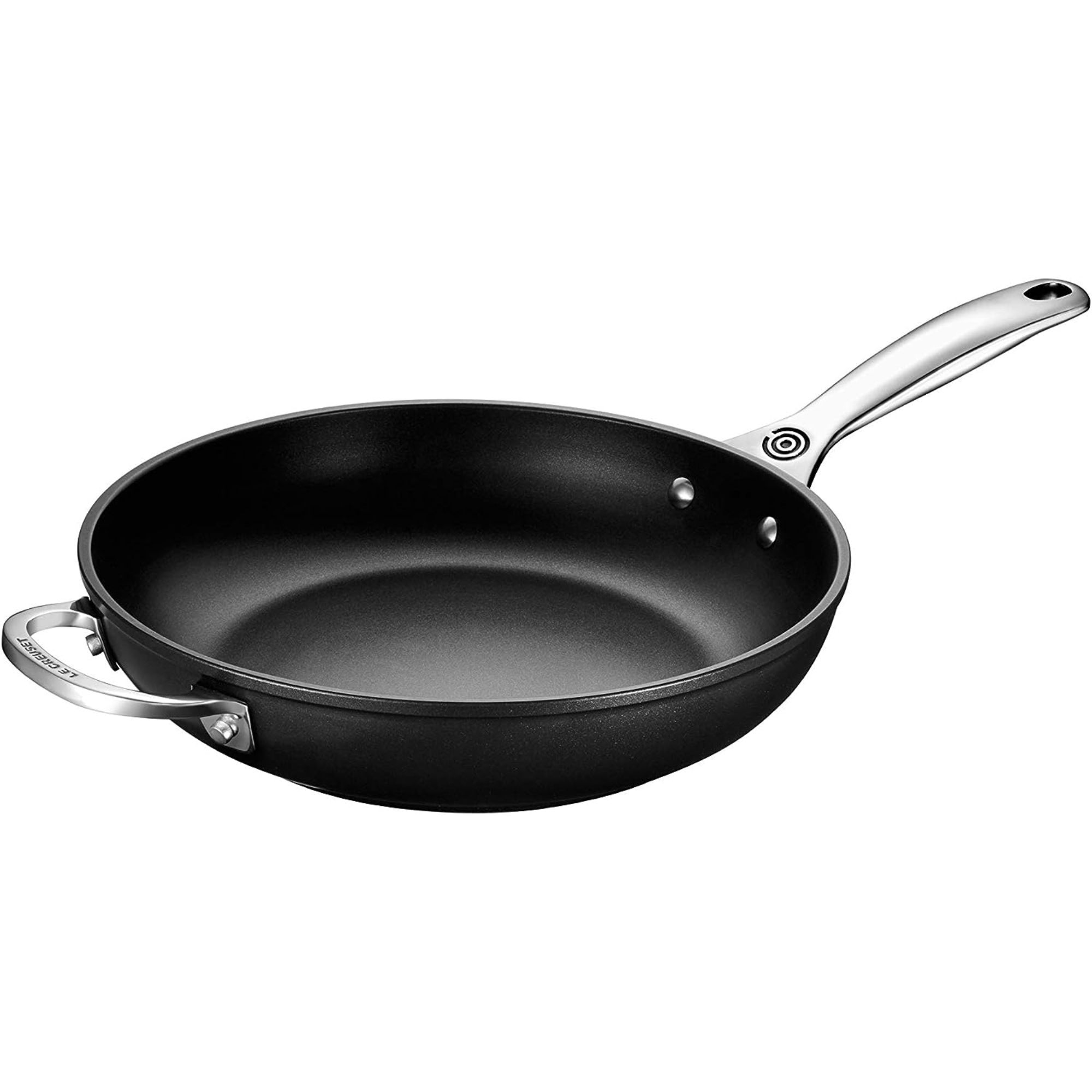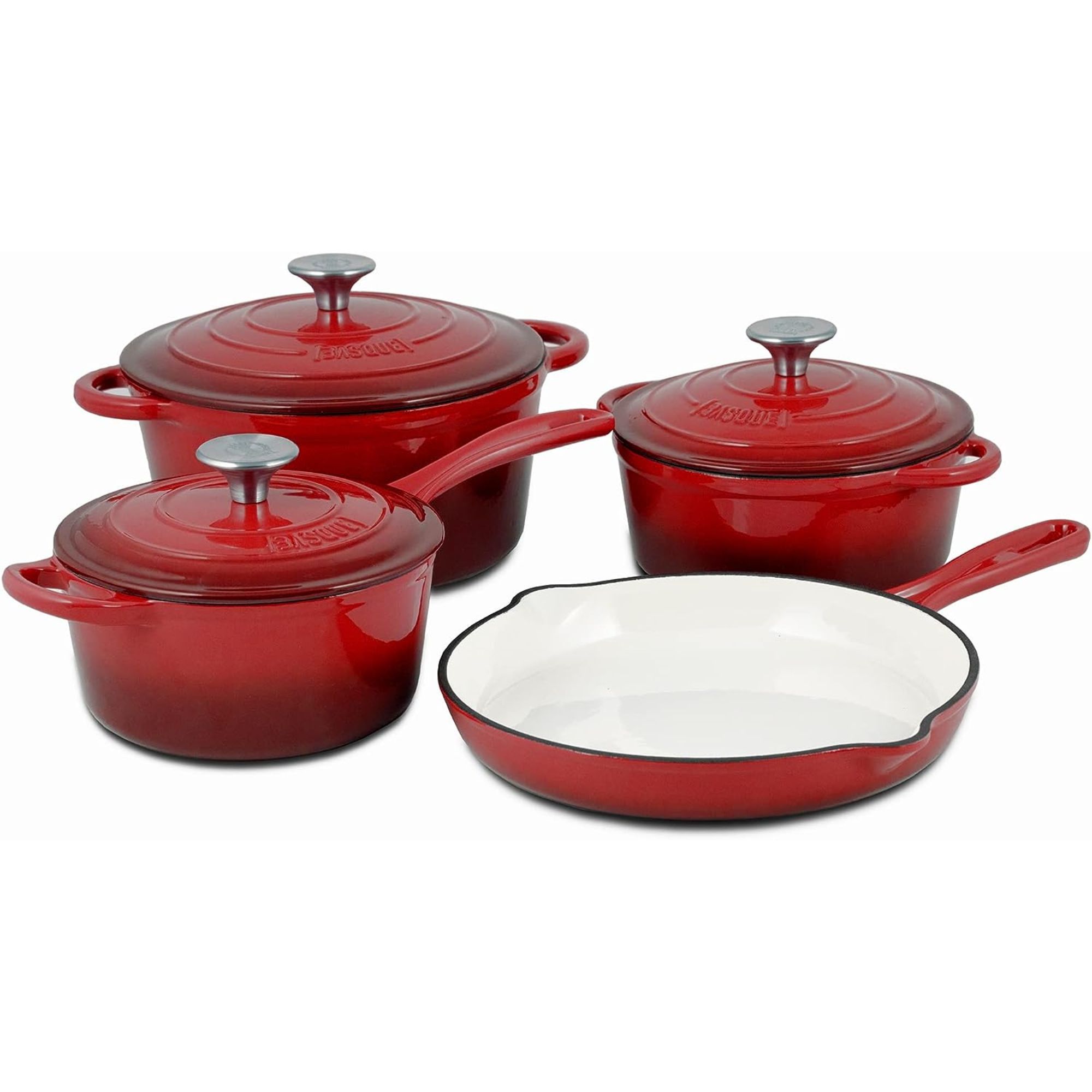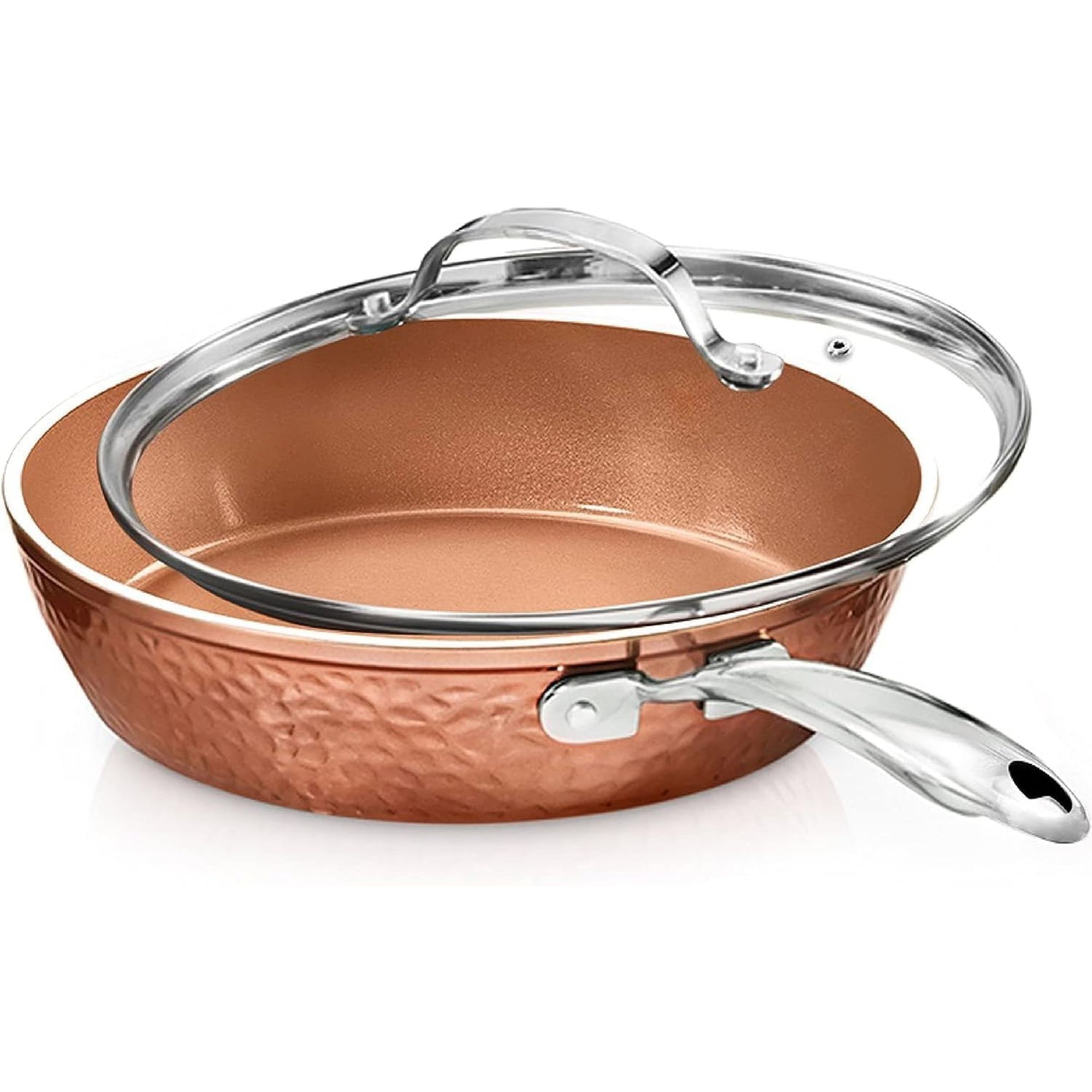Induction vs. electric cooktop – an expert comparison guide
We've saved you plenty of time scouring the web for reliable reviews comparing induction vs. electric cooktops – our experts have explained which option is superior for each of these 10 key factors


Deciding between induction and electric cooktops? While these two appliances may appear similar at first glance, they have fundamentally different characteristics that set them apart across various considerations.
To choose the best kitchen appliance – whether you're remodeling your kitchen or simply looking to upgrade your cooking experience – understanding the benefits and tradeoffs that distinguish these two popular cooktop types will help you make an informed decision.
In this comprehensive guide, our experts explain everything you should consider when choosing between induction and electric cooktops to select the one that best suits your cooking preferences, lifestyle, and kitchen type
Induction vs. electric cooktop – the comparison guide
'Induction cooktops offer rapid heating, energy efficiency, and ease of cleaning, ideal for those who value speed and sustainability,' says Alexander Hill, appliance expert from The Appliance Depot.
'Electric cooktops, meanwhile, stand out for their simplicity, versatility, and lower upfront cost, appealing to a wide range of users.'
Below, we've highlighted which option reins supreme in ten different categories to assist you in selecting the one that has the features that are most important to you.
The difference between the two stoves
'First, let's define the differences between the two types of stoves,' says appliance repair account manager of Home Alliance, Anastasia Lytvynova. 'An electric stove uses electricity to heat up a coil that's located beneath the cooking surface. When you turn on the stove, the coil heats up, and that heat is transferred to your cookware.
Design expertise in your inbox – from inspiring decorating ideas and beautiful celebrity homes to practical gardening advice and shopping round-ups.
'An induction stove, on the other hand, uses an electromagnetic field to heat up your cookware. When you place a magnetic pan on the induction cooktop, the cooktop creates a magnetic field that causes an electric current to flow through the pan, heating it up.'
1. Energy efficiency

'When it comes to energy efficiency, induction cooktops have a clear advantage,' says Alexander Hill. 'They convert a higher percentage of electrical energy into direct heat, ensuring that less energy is wasted, which can cut energy bills over time.'
'Induction cooktops work by using electromagnetic fields to directly heat pots and pans, resulting in quicker cooking times and lower energy consumption,' explains Rena Awada at Healthy Fitness Meals.
'Electric cooktops, on the other hand, are more traditional and use heating coils to transfer heat to the cookware.' These cooktops lack the rapid response and precision control offered by induction cooktops that make them more energy efficient.
Verdict: So, if you want to choose the most energy-efficient appliance, 'Induction cooktops are the best choice, with an average energy usage of 10-50% less than electric cooktops,' says Rena Awada.
2. Cooking performance
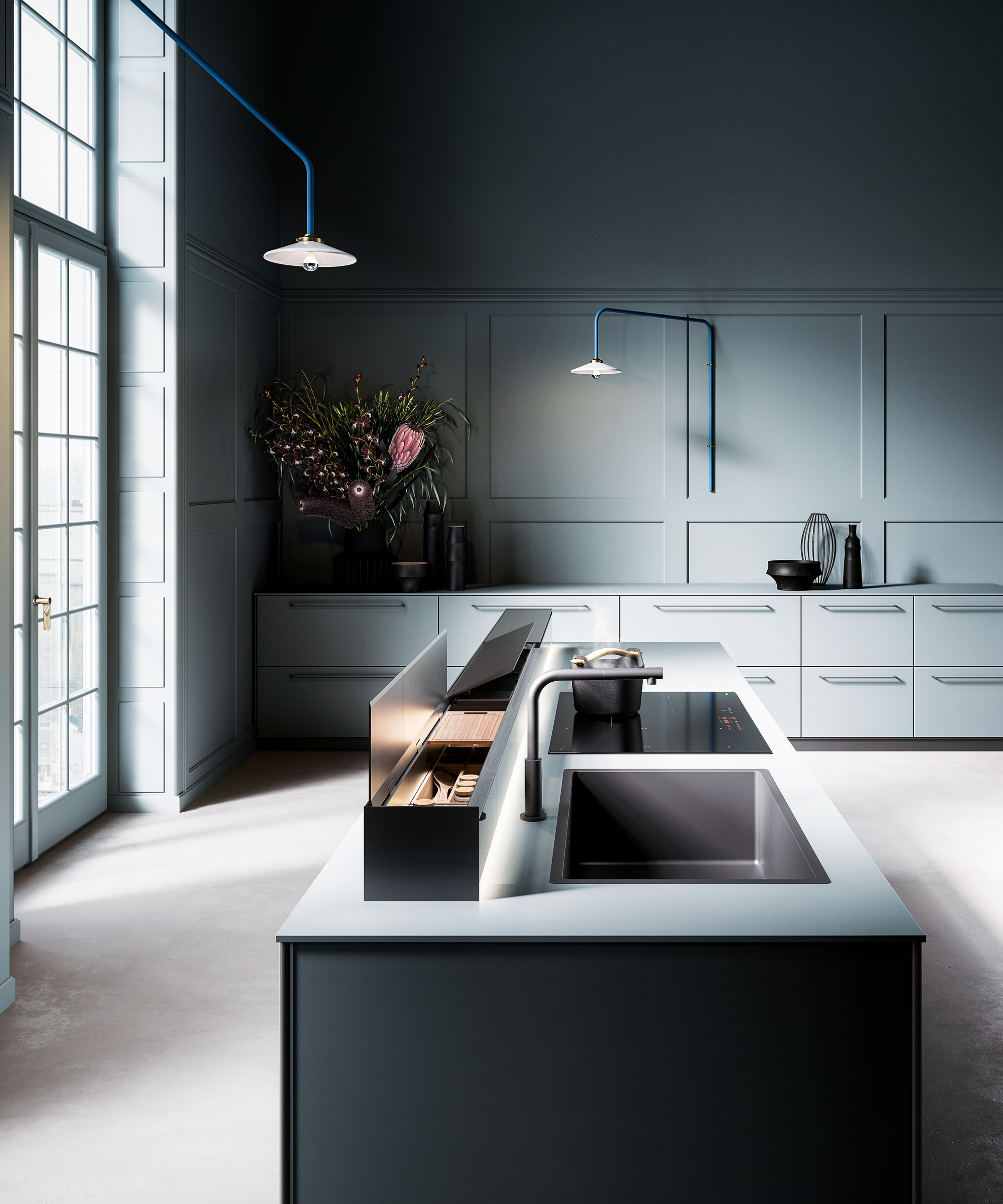
Monolith extractor unit; storage modules, Falmec
'Regarding cooking performance, induction cooktops are noted for their exceptional responsiveness. They can adjust the cooking temperature instantaneously, akin to gas cooktops, allowing for precise control over simmering, boiling, and other cooking processes,' explains Alexander Hill.
'This responsiveness is particularly beneficial for dishes requiring precise temperature management.
'Electric cooktops, while effective, generally offer slower response times in temperature adjustment, which can affect cooking precision for more delicate dishes.'
Verdict: So, for greater control precision and speed of heating up, induction stoves are the better choice.
3. Safety

'Induction cooktops, known for their efficiency and precision, employ electromagnetic fields to directly heat the cookware. This enhances safety, as the cooktop surface remains relatively cool to the touch, reducing the risk of accidents,' says Alexander Hill.
In contrast, electric hobs pose a higher risk of burns because their heating elements directly heat the cooking surface. Even after it is turned off, the surface will remain hot for some time, increasing the risk of burns or fires if flammable materials are put on heat rings.
Verdict: 'Induction stoves are safer than electric stoves because the cooktop itself doesn't get hot,' concludes Anastasia Lytvynova. 'This reduces the risk of burns or fires.'
4. Cookware compatibility
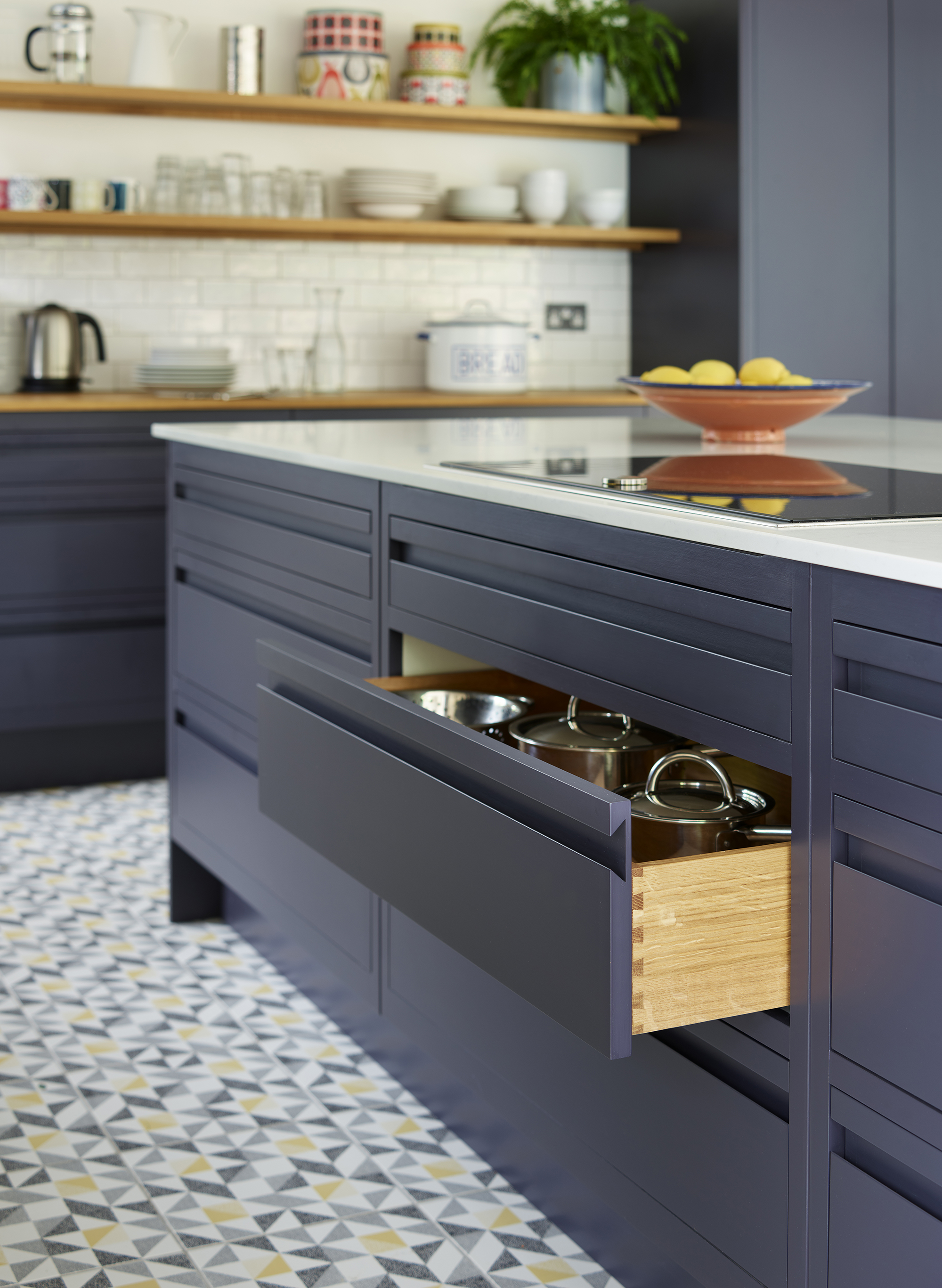
Because induction hobs heat pans with magnetic fields, 'They require cookware made of magnetic materials,' explains Anastasia Lytvynova. 'If you have a lot of non-magnetic cookware, you'll need to replace it if you want to use an induction stove.' Experts urge anyone with an induction hob to try the cheap magnet trick to determine whether cookware is suitable before purchasing.
On the other hand, electric cooktops, which heat cookware through electrical resistance, are compatible with a broader range of cookware.
Verdict: 'Unlike induction cooktops that require magnetic cookware, electric cooktops can accommodate any type of pot or pan. This versatility makes electric cooktops a practical choice for many households,' says Alexander Hill. If you don't have magnetic cookware and don't want to invest in a new collection, electric cooktops will be the better choice.
5. Durability

'Durability is a significant consideration for homeowners investing in new appliances.
'Induction cooktops are generally more durable than their electric counterparts due to their lack of physical heating elements and the smooth, robust glass surface that withstands daily use,' explains Alexander Hill. 'However, they can be more susceptible to scratches or damage from improper cookware use.
'In contrast, electric cooktops, particularly those with coil elements, can endure a wide range of cookware and physical impacts, though their elements may degrade over time and require replacement.'
Verdict: In general, induction cooktops are more durable than electric ones, because they don't have exposed heating elements which reduces the risk of damage from impact and spills. However, the durability of both will depend on maintenance and usage.
6. Maintenance and cleaning
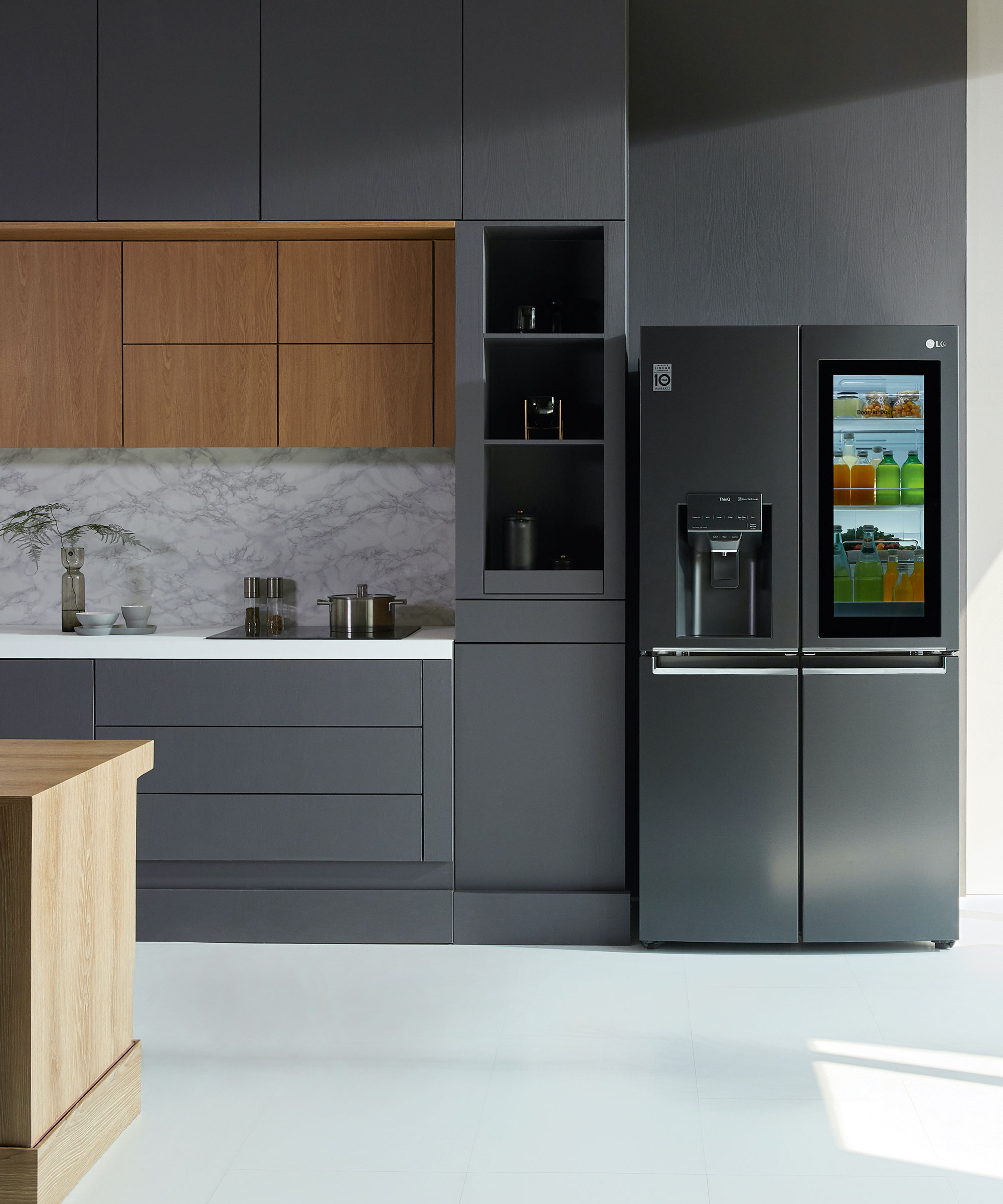
'Maintenance and cleaning are further aspects where induction cooktops excel.
'Electric cooktops, especially those with coil elements, can be more challenging to keep clean due to their design and the way heat is distributed,' explains Alexander Hill.
'Whereas, cleaning an induction cooktop is easier due to its smooth, flat surface and because it does not get as hot as an electric cooktop, preventing food from burning onto the surface.
Verdict: Induction hobs are the clear winner, with thorough cleaning of flat top stoves being a more simple and speedy process.
7. Environmental impact

The environmental impact of choosing between induction and electric cooktops is an increasingly important consideration.
'Unlike traditional electric cooktops, which lose a significant amount of heat during cooking, induction cooktops directly heat the cookware, significantly reducing energy waste and cooking times,' explains Matthew New, sustainable living expert and founder of Off Grid. 'This efficiency is not only beneficial for reducing electricity consumption but also for minimizing the overall carbon footprint.'
Verdict: 'Induction cooktops, with their higher energy-efficiency and faster cooking times, can contribute to a lower carbon footprint,' says Alexander Hill.
8. Aesthetics

'The choice between the two can significantly influence the kitchen's visual harmony and design coherence.
'Aesthetically, induction cooktops offer a sleek, modern look that complements modern kitchen designs. Their flat, minimalist surface integrates seamlessly into countertops, enhancing the kitchen's overall appearance.
'Electric cooktops, especially models with raised coils, might not offer the same level of integration but can still fit well within traditional kitchen aesthetics.'
Verdict: While this will depend on your personal preferences, induction hobs tend to blend with more kitchen styles, and offer a more streamlined aesthetic, making it our preferred option.
9. Sound
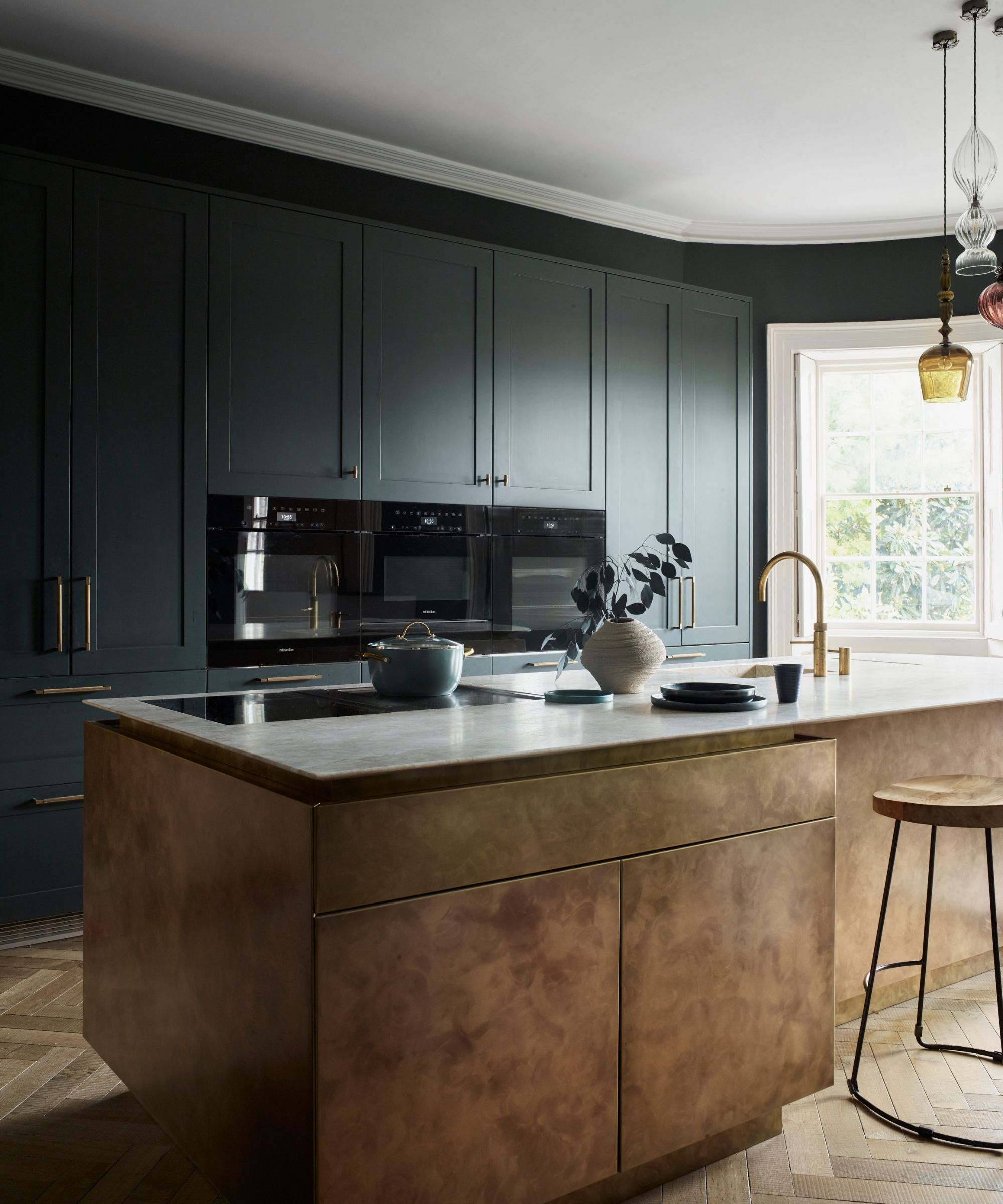
'Induction cooktops can produce a low humming sound due to the electromagnetic field, especially when used at high-power settings or with certain types of cookware,' says Alexander Hill. 'Although this noise is usually not disruptive, it can be a consideration for some users.
'Electric cooktops operate quietly, with minimal sound beyond the click of the switch and the natural sizzle of cooking food.'
Verdict: If complete silence is a priority of yours when choosing a cooktop, then electric cooktops are the way to go.
10. Cost

'Electric cooktops are the most affordable cooktop option, costing between $360 and $1,800,' says Mallory Micetich, a home expert at Angi. 'Induction cooktops are more expensive, averaging at around $3,000 per unit.'
In conclusion, out of these factors, induction hobs are seemingly the superior option, being the better choice for 7/10 of our categories. However, the choice between an induction or electric cooktop hinges on your priorities.
If you're looking for a stove that heats up quickly, is energy-efficient, and is safe to use, an induction stove might be the best choice for you.
However, if you want a lower upfront cost, have a lot of non-magnetic cookware, or don't mind waiting a bit longer for your stove to heat up an electric stove might be the better choice.
Ultimately, the decision comes down to your personal preferences, lifestyle, and budget, cooking habits, and kitchen design preferences when selecting the right cooktop for your kitchen.

Lola Houlton is a news writer for Homes & Gardens. She has been writing content for Future PLC for the past six years, in particular Homes & Gardens, Real Homes and GardeningEtc. She writes on a broad range of subjects, including practical household advice, recipe articles, and product reviews, working closely with experts in their fields to cover everything from heating to home organization through to house plants. Lola is a graduate, who completed her degree in Psychology at the University of Sussex. She has also spent some time working at the BBC.
